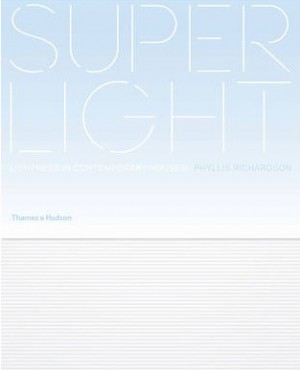Phyllis Richardson
One of the most influential design philosophies of the past 25 years has been Glenn Murcutt's dictum that buildings should touch the earth lightly. While architects have always sought to liberate architecture from its solid foundations through the use of new materials and spatial reconfigurations, climate change, new materials and restricted land use have given new impetus to finding lightweight solutions for our homes. Superlight houses combine two strands of thinking: that lightweight buildings have less impact on their environments, and that this lightness (visually, materially, ecologically) can lead to more open living and greater communion with their surroundings. Each of the 41 houses presented here is shown through photographs, plans and lucid explanations. Residences that appear to float, ingenious constructions using local materials, innovative structures, inflatable spaces, high-tech hyper- intelligent houses superlight takes many forms, in many places from the urban jungle of Tokyo to rural China and mountainous Chile.
London, 24 x 19cm, 256pp, illustrated, paperback.
